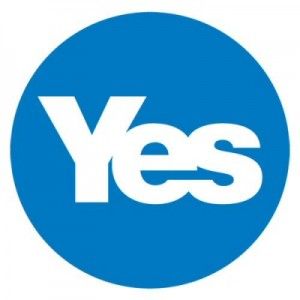
A summary report of the SURF debate on 18.09.13 in Edinburgh
Purpose and Process
SURF is Scotland’s independent cross-sector regeneration network. It draws on the experience, knowledge and activities of its diverse membership to inform and improve understanding, policy and practice.
SURF convened this event to enhance the considerations of its members, who are increasingly interested in how potential constitutional change might affect their work and the future of collective regeneration efforts in Scotland.
The debate was initiated by two experienced campaign representatives, each with a keen interest in community regeneration. Sarah Boyack MSP (Labour), representing the Better Together campaign, has a background in town planning and is currently the Shadow Cabinet Secretary for Local Government and Planning. Patrick Harvie MSP, Co-Convener of the Scottish Green Party, participated on behalf of the Yes Scotland campaign. His main areas of interest include social issues, housing and planning.
The purpose of the debate was to explore the implications of potential constitutional change and to identify some key areas the SURF network would like to see investigated in more depth over the coming 12 months, prior to the September 2014 independence referendum. 70 guests from across the SURF network participated in the lively debate, which took place on 18 September 2013 in Edinburgh, exactly one year prior to the vote.
This webpage provides some information on the opening presentations and the main topics discussed during the subsequent open debate.
Presentation – Patrick Harvie on the rationale for saying ‘Yes Scotland’
 In his opening remarks, Patrick noted that responsibilities for housing, regeneration and planning are already devolved to the Scottish Parliament. He argued, however, that all the Scottish Government and local councils can do with these powers is “eternal fire-fighting” in trying to protect disadvantaged communities. He argued that this work is made more difficult by the current UK Government’s economic policies, and local challenges that have been greatly exacerbated by the recession.
In his opening remarks, Patrick noted that responsibilities for housing, regeneration and planning are already devolved to the Scottish Parliament. He argued, however, that all the Scottish Government and local councils can do with these powers is “eternal fire-fighting” in trying to protect disadvantaged communities. He argued that this work is made more difficult by the current UK Government’s economic policies, and local challenges that have been greatly exacerbated by the recession.
To make real change, he argued, Scotland needs to secure control of economic levers that are currently with the UK Government in order to develop a jobs-rich, resource efficient economy. With the current constitution, he said, Scotland has insufficient ability to develop an alternative to the current austerity programme with its, “low wage, low tax ‘Alice in wongaland’ economic strategy.”
Patrick also said that voting ‘no’ to independence would have a little-discussed downside in leading to a situation where Westminster would think, “enough about Scotland”, and make Scotland’s economic development a low priority post-referendum.
Presentation – Sarah Boyack on why we are ‘Better Together’
 In responding, Sarah argued that devolution has already given the Scottish Government the key powers it needs to improve prospects for our struggling communities, and that it should focus on doing more with these powers within the current constitutional framework. She said that devolution has been a great success for Scotland – so much so, that it would be unthinkable to go back to the previous arrangement.
In responding, Sarah argued that devolution has already given the Scottish Government the key powers it needs to improve prospects for our struggling communities, and that it should focus on doing more with these powers within the current constitutional framework. She said that devolution has been a great success for Scotland – so much so, that it would be unthinkable to go back to the previous arrangement.
Sarah asserted that the value of being part of the UK was clear in a wide variety of areas, including: economic trade; the opportunity to share learning around town centre regeneration; the valuable research funding Scotland’s academic institutions currently receive; and greater support in unlocking Scotland’s renewable energy potential.
Our communities will not win, she said, in a “race to the bottom on corporation tax” under an independent Scotland. Sarah also argued that the Scottish Government should be doing more to devolve powers to communities, rather than trying to gain more powers for itself. She closed by stating, “the question is not ‘could’ we be independent, but ‘should’ we be independent.”
Open debate
In the course of the debate, the following main topics of interest emerged:
Degenerative Dynamics – the abandonment of places by large-scale industries following unfavourable market changes accelerates degeneration and reinforces place-based regeneration. What can be done to address the imbalances in relationships between corporate power, political systems and local people that tend to corrupt the democratic processes for addressing such challenges?
Energy Generation – how the referendum outcome might open up possibilities to utlilise Scotland’s natural resources for a more diverse, sustainable and localised renewable energy generation and distribution system.
Human Resources – how might additional powers help create higher quality and practical jobs rather than focusing on university places, apprenticeships and part-time, low-skilled employment? Related to this point, how might a Scottish immigration policy better reflect the difference in pressures, attitudes and demands between Scotland and some English regions?
Land Ownership – as the ultimate finite resource, how do we stimulate better use of land by increasing access, sustainable use and wider ownership, especially in urban Scotland?
Local Democracy & ‘Double Devolution’ – how might it be possible to have much more local, participative and accountable decision making, as is standard in many other small European countries? Would independence make such an outcome more or less likely?
Taxation – what further tax powers should be devolved to the Scottish Parliament, and how could they best be used to support community regeneration? How could we achieve a more progressive approach to income tax, corporation tax and indirect taxes like VAT? Why do the originally devolved tax powers remain unused?
Overcoming Short-Termism – how can this unique opportunity for collectively considering these interrelated challenges be best used to help establish an enduring framework of basic regeneration policies and resources capable of surviving short-term electoral cycles?
Next steps
SURF Chair Brian MacDonald thanked Patrick Harvie and Sarah Boyack and everyone present who had freely contributed to the wide-ranging and constructive discussion.
SURF Chief Executive Andy Milne confirmed that SURF would now:
- Produce and widely circulate a summary of the main points of interest arising from the debate;
- Use its extensive network of practitioners, policy makers and academics to explore these issues further;
- Use its website and other SURF network communication channels to showcase comment, information and opportunities related to these aspects of the continuing debate;
- Reconvene a follow up debate on a suitable date prior to the referendum of 18.09.14.
For future updates on this stream of work and SURF’s wider activities, please sign up to our mailing list.
